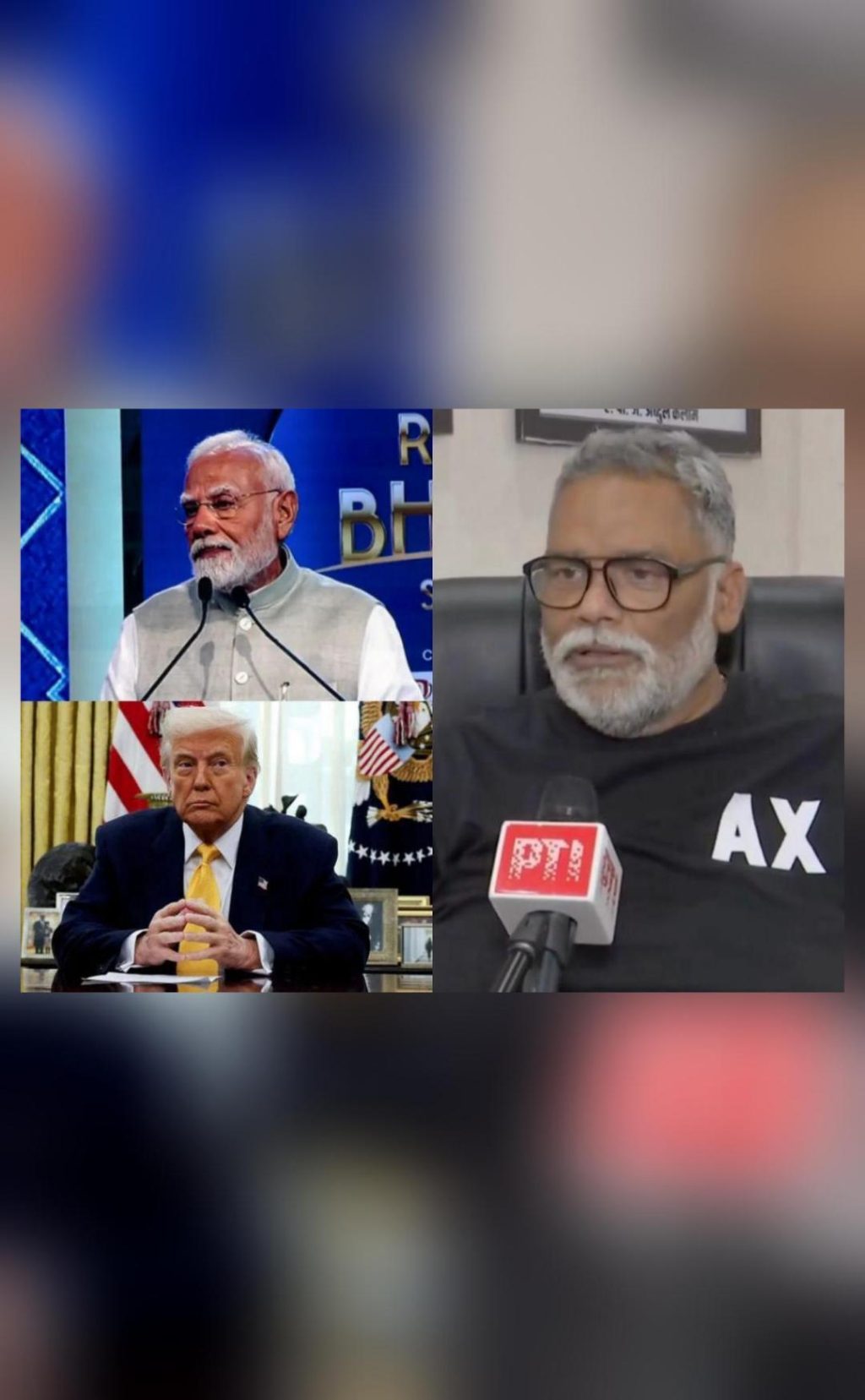
PM Modi Calls Trump His Friend & He Insults India: MP Pappu Yadav
The recent escalation in tensions between India and Pakistan has once again brought to the forefront the complex and often contentious relationship between the two nuclear-armed neighbors. In the midst of this standoff, US President Donald Trump has once again inserted himself into the fray, claiming that he brokered a ceasefire between the two countries. However, his statement has been met with widespread skepticism and even ridicule, with many questioning the validity of his claims.
Adding fuel to the fire is the reaction of Purnia MP (Independent) Pappu Yadav, who has taken a scathing view of Trump’s statement. In an interview, Yadav expressed his displeasure at Trump’s claims, saying that PM Narendra Modi himself calls Trump a friend, and yet he is insulting India again and again.
“Trump is our enemy, and we are calling him friend,” Yadav added, his words dripping with sarcasm and frustration. “Why are we intimidated by the US and China?” he asked, his tone laced with a sense of exasperation.
Yadav’s remarks are a reflection of the growing unease and discontent among many Indians regarding the country’s relationship with the United States. While Trump’s administration has been vocal in its support for India, many have criticized the country’s willingness to accommodate US interests, particularly in the realm of foreign policy.
The latest row began when Trump claimed that he had brokered a ceasefire between India and Pakistan, a claim that was met with skepticism by both countries. India’s Foreign Ministry issued a statement saying that there was no truth to Trump’s claims, and that any talks between the two countries would have to be carried out bilaterally.
However, Trump’s statement has set off a firestorm of controversy, with many questioning his motives and the validity of his claims. Some have accused him of attempting to insert himself into the conflict in order to boost his own reputation, while others have criticized his lack of understanding of the complex issues involved in the India-Pakistan conflict.
Yadav’s remarks are a reflection of the growing frustration and disillusionment among many Indians with the country’s relationship with the United States. While India and the US have a long history of cooperation and diplomacy, many have come to see the relationship as overly dependent on the whims and fancies of the US administration.
In recent years, the US has been increasingly vocal in its criticism of India’s economic policies, particularly with regards to issues such as trade and intellectual property. The US has also been critical of India’s relationship with China, with some accusing the country of being overly reliant on Chinese investment and technology.
The latest row has sparked a heated debate about the nature of India’s relationship with the US, with many calling for a greater degree of independence and autonomy in the country’s foreign policy. Yadav’s remarks are a reflection of this growing sentiment, with many calling for a more assertive and independent approach to foreign policy.
The controversy has also raised questions about the nature of Trump’s relationship with PM Modi. While the two leaders have been known to have a cordial relationship, many have questioned the depth of their relationship and the extent to which it is based on mutual respect and trust.
In recent years, PM Modi has been vocal in his praise of Trump, calling him a “good friend” and a “great leader”. However, Yadav’s remarks suggest that some may view this relationship as being overly dependent on the whims and fancies of the US administration.
The latest row is a reminder of the complex and often contentious nature of international relations. As the world becomes increasingly interconnected, the need for diplomacy and cooperation is greater than ever. However, it is also clear that the pursuit of national interests and the protection of one’s own sovereignty must also be a key consideration.
In conclusion, Yadav’s remarks serve as a stark reminder of the growing frustration and disillusionment among many Indians with the country’s relationship with the United States. While the two countries have a long history of cooperation and diplomacy, many are beginning to question the nature of their relationship and the extent to which it is based on mutual respect and trust.
As the world becomes increasingly complex and interconnected, the need for diplomacy and cooperation is greater than ever. However, it is also clear that the pursuit of national interests and the protection of one’s own sovereignty must also be a key consideration.



